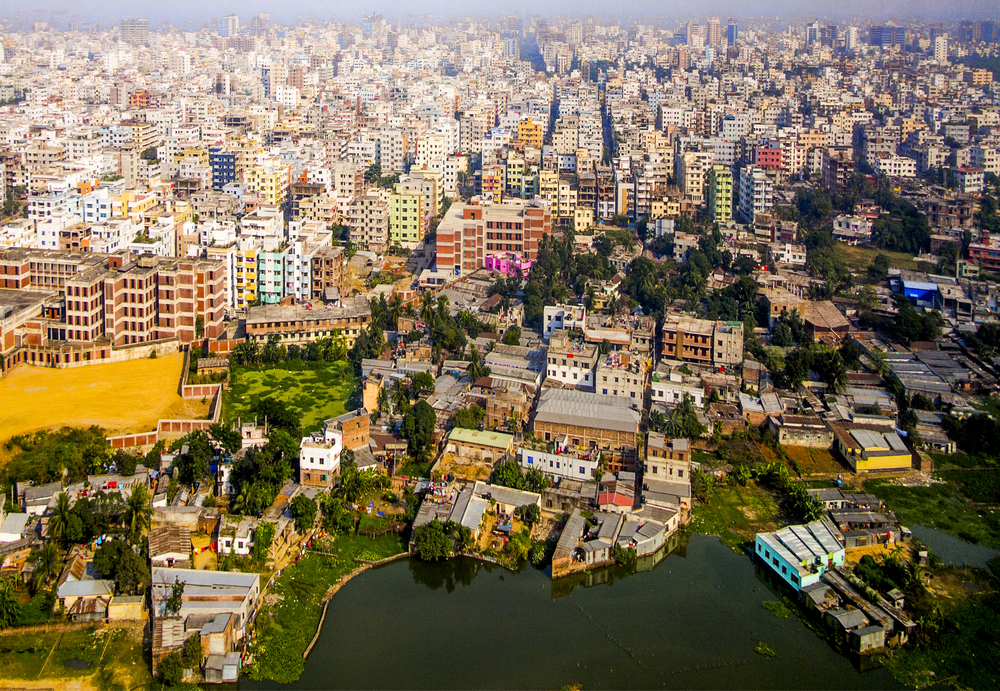Bangladesh’s Dysfunctional Two-Party System and Democratic Paralysis

Please note that we are not authorised to provide any investment advice. The content on this page is for information purposes only.
Democracy in Bangladesh is broken.
The country recently witnessed political deadlock causing violence and crippling unrest. Bangladesh’s dysfunctional two-party system, dominated by the Awami League and Bangladesh Nationalist Party (BNP), has seen party leaders wage personal vendettas to grab power. The trigger for the political unrest and violence was a banned protest to mark the anniversary on 5 January of the controversial national election held in 2014.
Democracy in Bangladesh is broken.
The country recently witnessed political deadlock causing violence and crippling unrest. Bangladesh’s dysfunctional two-party system, dominated by the Awami League and Bangladesh Nationalist Party (BNP), has seen party leaders wage personal vendettas to grab power. The trigger for the political unrest and violence was a banned protest to mark the anniversary on 5 January of the controversial national election held in 2014.
In that election the incumbent Awami League, led by Prime Minister Sheikh Hasina, was re-elected easily due to an opposition boycott. The opposition demanded that a neutral non-party caretaker government conduct the election. The opposition leader, Khaleda Zia, has been confined to a party office in Dhaka since 5 January 2015. As a result, her BNP has been staging a nationwide blockade of roads, railways and waterways. In addition to the crippling blockade, BNP’s Khaleda called frequent general strikes from 1 February.
Reports say more than 100 people killed and nearly 10,000 opposition activists arrested. BNP leaders are mostly in custody, in exile or in hiding, and face criminal charges that will perhaps prohibit them from running in the next election. The current situation appeared to be reaching a head when the government temporarily cut the electricity supply, food supply and internet cables to Khaleda’s redoubt and afterwards issued a warrant of arrest against her.
Why has Bangladeshi politics become so tumultuous?
From 1991, the Awami League and the BNP have alternated in government. Both parties believe that the other will try to rig elections, so an interim non-party caretaker administration conducted elections. In 2006, Khaleda’s party, at the end of a particularly corrupt stint in office, also tried to rig that system. The army intervened to back a non-party ‘technocratic’ government, which after two years held an election won in a landslide by the Awami League.
The Awami League has used its majority to consolidate its power, and tried to make it more difficult for the BNP to win an election by abolishing the caretaker system, arresting opposition leaders and banning BNP’s largest coalition partner Jamaat-e-Islami on account of its Islamic fundamentalism. Both the Awami League and the BNP have accused each other of contributing to the current political mess. On the one hand, the government claims it is combating acts of vandalism and terrorism by the BNP. On the other hand, the opposition accuses the government of trying to create a non-democratic one-party state.
The two political leaders have taken a winner-takes-all approach to politics in order to achieve personal gain in which the futility of rigged elections usually forces the opposition on to the streets causing violence and political instability. Thus, any attempts, during the technocratic interregnum, to encourage ‘third forces’ to emerge to challenge them proved fruitless. Bangladesh’s big neighbours, like India, seem to be unwilling to meddle in the political deadlock. India has little trust in Khaleda Zia, considering her as both willing to allow China a greater role in the country and as being soft on Islamism.
The BNP’s transport blockade and frequent strikes have prompted growing tensions and unrest. A military coup is unlikely though.
The current regime is unlikely to treat the unrest as a political crisis and call fresh elections. Given this, both ruling parties must do what they can to avoid further political turmoil in Bangladesh by taking the initiative to pull back from their own dogmatic positions and to restrain violence by embarking on a dialogue to overcome the challenges facing the country because of democratic paralysis and systemic violence.
Bangladesh’s democracy sinks deeper into the mire is republished with permission from East Asia Forum




